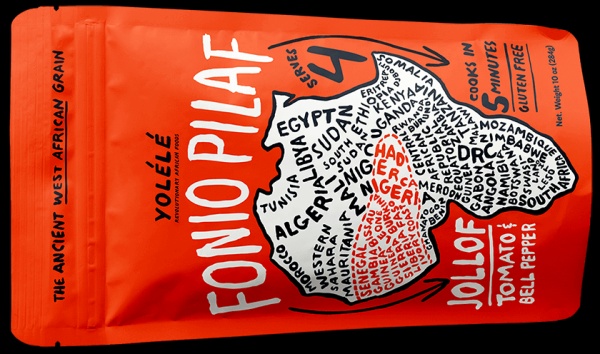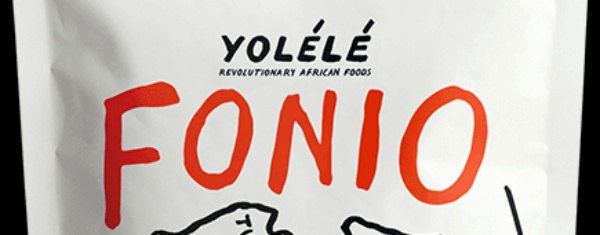What Fonio, or any other food, should share with serious digital standards
It is something as simple, as it is important.
Fonio is “nutritious, Ancient Grain of the Future”: a “climate crisis-ready crop [that] will compete with quinoa globally, while supporting smallholder farms in West Africa."
Fonio is one of the many solutions to a serious global problem:
“Multinational corporations (and foundations) generally… encourage farmers to grow high-yield varieties of crops developed in the U.S. and Europe, using expensive seeds, fertilizers, and pesticides. In many cases, the crops fail to thrive due to the differences in climates and soils. And the same negative environmental impacts associated with industrial agriculture in the U.S., including the loss of biodiversity and water contamination, follow. Overall, these efforts rarely decrease hunger or make farmers more financially secure.
The “rediscovery” of an ancient, very modern crop

Fonio Pilaf, one of the ways to enjoy a gluten-free, ancient West African grain
</em></u>
While conducting cookbook research in Senegal, Pierre Thiam came across a form of millet called fonio, cultivated for more than 5,000 years, and still widely consumed across rural West Africa, but nearly disappeared from urban diets. Studying fonio, Thiam was impressed by its modernity, or readyness for the challenges of our times. Because Fonio is:
- a climate crisis-ready crop, that grows in poor soils in drought conditions with little to no inputs
- a great way to preserve agricultural biodiversity and cultural identity in West African countries
- nutrient-dense, naturally gluten-free
In 2017 Thiam and P. Teverow founded Yolélé, a company that would buy fonio from smallholder farmers, build a local supply chain, and export it around the world.
So far, this has not happened because, in addition to its advantages, fonio is incredibly difficult to process, at least with the means used so far.
To solve this problem, Yolélé has been developing a proprietary processing system that should go into production in Mali, in the first quarter of 2022.
That system should increase the throughput of fonio processors of about seventy times (from one ton per day, to three per hour), cut waste at all levels of the supply chain, and make fonio products (see the fonio pilaf above) profitable.
This, in turn, should:
- greatly increase access to fonio to many millions of people in poverty in West Africa
- provide economic security and extra income to small farmers in the same region
- increase overall production to make interesting for food multinationals, as a replacement of rice, wheat, corn or other grains

Fonio, revolutionary african food
</em></u>
Why I am concerned about Yolélé
I sincerely wish Yolélé all the best, and seriously intend to try some of their fonio recipes, sometimes. I mean, there already is one for yummy-looking italian fonio stuffed peppers, how could I pass it?
There are two things, though, that concern me about fonio, and Yolélé’s plans for it. One is seeing fonio promoted as “perfectly suited to serve Western health trends", that is the possibility that it ends up like quinoa. As you can read in the interview, the founders of Yolélé seem very aware of those risks, and determined to avoid them, but it is a difficult task. Best wishes, sincerely!
The other concern may be summed with one, admittedly clickbait question:
Is Yolélé ready to die?
The question comes from reading that “Yolélé has been developing a proprietary processing system”. What Yolélé is doing seems too good, and too important to me, to not wish that it is really future-proof.
If Yolélé goes bankrupt, something that again I do not wish to them, what happens to their proprietary system? Will it be lost in some legal limbo, where noone else can resume the good fight without reinventing lots of wheels, because that “intellectual property” is locked?
What if Yolélé ends up exactly like scores of competitors of Facebook or Google, that is bought with a mountain of cash, for the only reason to shut it down, in order to make much bigger mountains of cash?
A good way to prevent such outcomes, maybe the oly one, would be for Yolélé to become like email, or other digital standards that are ubiquitous exactly because they are impossible to really buy out. Yolélé should “configure” itself, as soon as possible, to “die in Open Source fashion”.
Who writes this, why, and how to help
I am Marco Fioretti, tech writer and aspiring polymath doing human-digital research and popularization.
I do it because YOUR civil rights and the quality of YOUR life depend every year more on how software is used AROUND you.
To this end, I have already shared more than a million words on this blog, without any paywall or user tracking, and am sharing the next million through a newsletter, also without any paywall.
The more direct support I get, the more I can continue to inform for free parents, teachers, decision makers, and everybody else who should know more stuff like this. You can support me with paid subscriptions to my newsletter, donations via PayPal (mfioretti@nexaima.net) or LiberaPay, or in any of the other ways listed here.THANKS for your support!